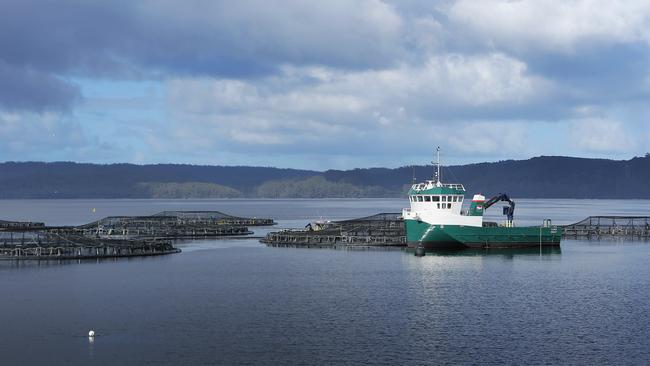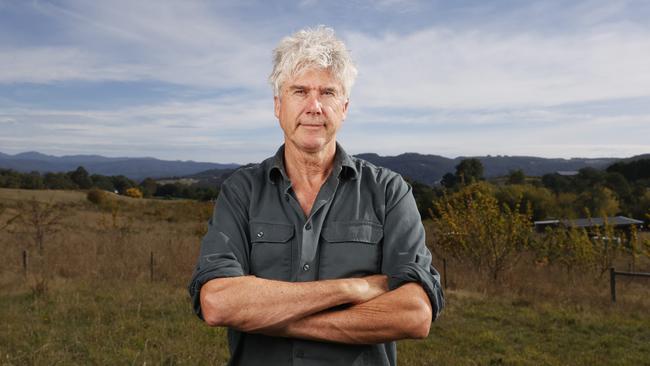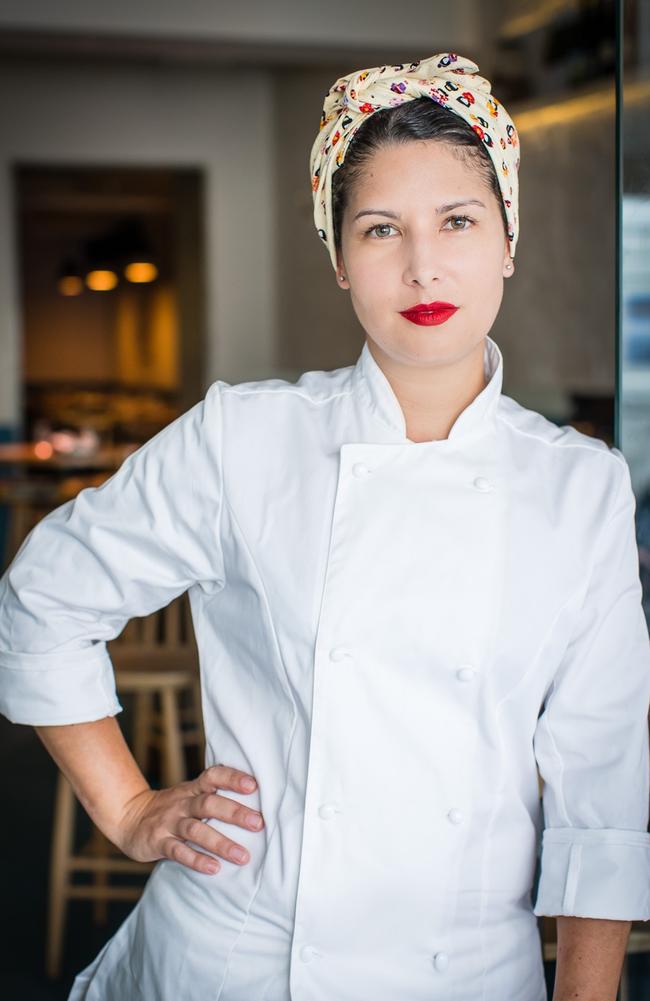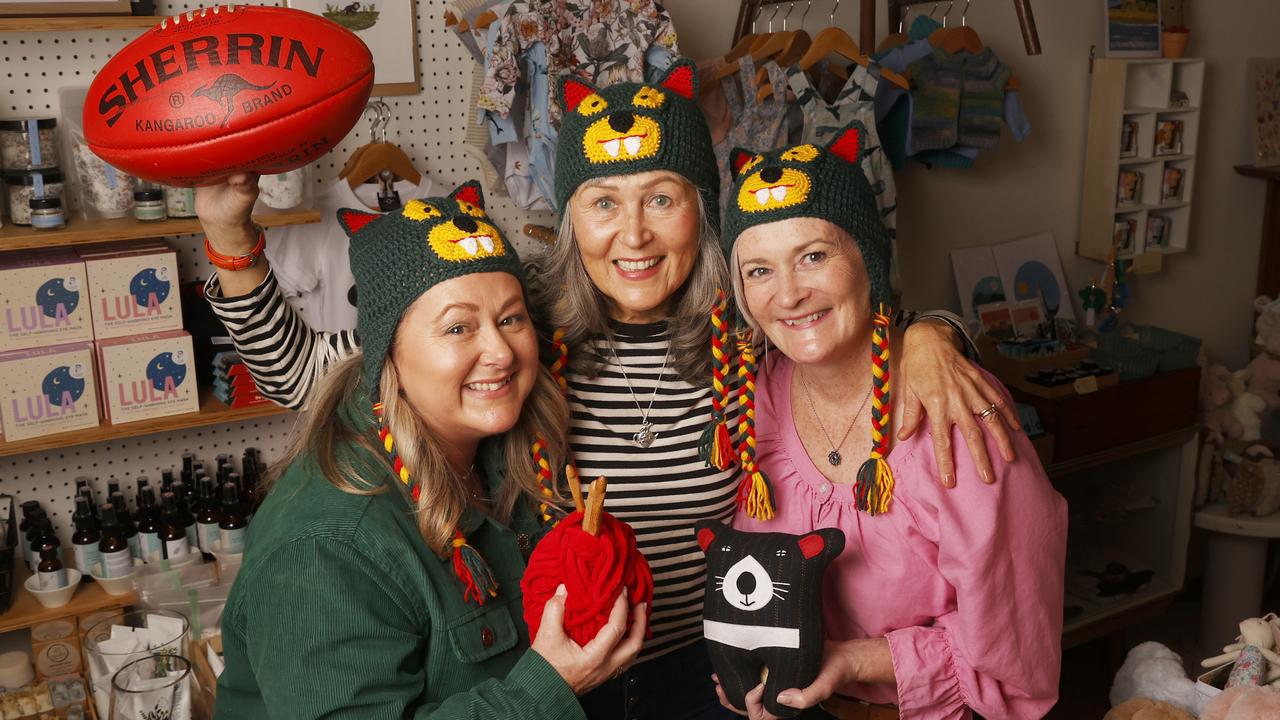Why celebrity chefs are snubbing Tasmanian salmon this Easter
Influential celebrity chefs across the globe are joining a rising chorus against farmed Tasmanian salmon, with one TV host slamming the “dirty industry”. See who’s speaking out.

Tasmania
Don't miss out on the headlines from Tasmania. Followed categories will be added to My News.
A group of influential celebrity chefs are joining growing calls against farmed Tasmanian salmon, with one TV host slamming the “dirty industry”.
Host of successful SBS series’ Gourmet Farmer and What’s The Catch Matthew Evans has pledged to never serve Tasmanian salmon at his Fat Pig Farm in the Huon Valley.
“We see first hand the rubbish and devastation that poorly regulated and unsustainable fish farming has caused,” the former food critic said.
Mr Evans works and lives in the Huon Valley as an author and farmer and said it was clear the way Tasmania produced salmon “continues to harm Tasmania’s natural environment”.
“It’s a dirty industry that refuses to clean up its act,” he said.
Mr Evans has joined other chefs, restaurants and businesses in a push to rid menus of farmed Tasmania salmon this Easter and beyond in a new Off The Table campaign.

The global campaign was founded in Scotland, with organisations in the UK, Canada, Iceland and now Australia and asks chefs, restaurants and consumers to say no to eating, selling or serving open-net farmed salmon and to explore alternatives.
Mr Evans said there was a fish for every occasion, and recommended mullet, pink ling or whiting for families’ Easter feasts this year.
He said he eats things further down the food chain like oysters, and faster growing fish like sardines which use less of the world’s resources.
Community group Neighbours of Fish Farming is co-ordinating the Off The Table campaign, with Jess Coughlan saying the Australian contingent had rallied a growing number of chefs and restaurants committed to taking “unsustainable” farmed salmon off their menus.
It comes just weeks after one of Tasmania’s most longstanding seafood restaurants, Mures, pulled farmed Tasmanian salmon off its menus.
Earlier this year a bacterial outbreak led to rotting chunks of fish washing up on beaches across Southern Tasmania after an unprecedented mass casualty event.
This prompted national scrutiny of Tasmanian salmon farming practices, and led to the revocation of the only RSPCA certification for salmon farming in Australia.

Another Tassie chef getting behind the Off The Table campaign is Analiese Gregory, Girl’s Guide to Hunting, Fishing and Wild Cooking host and former chef at Michelin star restaurants Le Meurice in Paris and Quay in Sydney.
“It can be hard to need to change menu items for a variety of reasons but I feel that one small achievable step at a time is the answer,” she said.
“Do your research, ask the questions, figure out what you’re happy with serving then find ways to replace the other ingredients such as transitioning to smoked trout instead of salmon, etc.
“Also be prepared to do some educating with the dining public as you go, train your staff on how to explain the decisions and why they’ve been taken.”

For Stephen Peak, head chef at New Norfolk’s The Agrarian Kitchen, it was all about actively promoting the sourcing of local line-caught sustainable Tasmanian wild fish.
“Open net fish farming in Tasmania is unsustainable,” Mr Peak said.
“Salmon and ocean trout are farmed in coastal waterways using industrial farming practices and come at a significant cost to the environment.
“As a chef, I believe I have a responsibility to serve produce that has been farmed ethically and sustainably, and to educate and promote the importance of small-scale, local and sustainable farming.”

Former head chef at Sydney’s Kiln restaurant Mitch Orr says serving quality produce that tastes good “is only half of what it’s about”.
“It’s our responsibility to understand and care about where our produce comes from,” Mr Orr said.
“I’ll never serve farmed Atlantic salmon or ocean trout from Tasmania. These products are the result of an unethical food system. One that is rife with welfare issues and environmental pollution. Not to mention the chemical additives in the industrial feed used. It’s simply not a fish I would be able to take pride in plating up.”
Originally published as Why celebrity chefs are snubbing Tasmanian salmon this Easter





